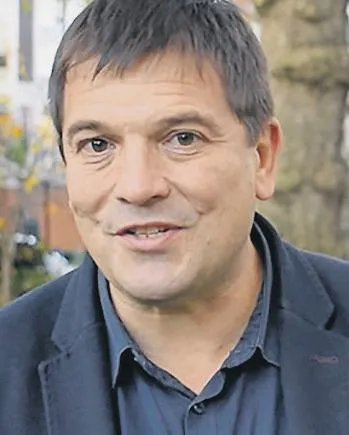
‘Get ready for mission in
2022’, Rico tells churches
EN
Date posted: 1 Jan 2021
Rico Tice (pictured) has launched
the 2022 Passion for Life mission
with 2 Timothy 1:10, reminding
everyone that Jesus has destroyed
death.
In a short video he says: ‘I know the pandemic has been brutal, but
it has opened things up. [People]
are
looking
for answers. We’ve all been
rocked. How can we help people to go from
hunger and spectating, to actively following
Jesus? Let’s come together as we seek to answer that question.’
A Passion for Life took place
nationwide
in 2010 and 2014.
Tice says the hope is that ‘life and
immortality will be brought
to
light as we proclaim the gospel of
Jesus to all corners of the UK.
‘So many
are
talking
about
this being a reset. Surely there’s
no better time for us to gather
together again and proclaim Christ … put
March and April 2022 in the church diary,
and begin praying and planning for a Passion
for Life.’

2021: LOOKING AHEAD
A variety of evangelicals reflect on what might lie ahead in the next 12 months
Innovative evangelism? Adrian Reynolds, Associate National Director FIEC
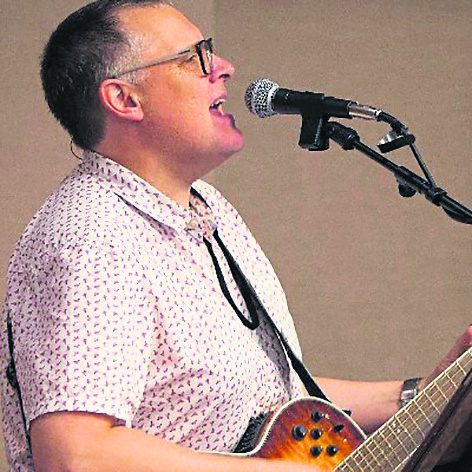 I hope and I pray that 2021 will see churches give evangelism its appropriate focus. In general terms, the lockdown has held us back: churches have often succumbed (understandably) to survival mode – let’s just keep going! Others have seen opportunities, but have not really known how to make the most of them. Others still have not known how to adapt to a changing environment and have simply mourned what they cannot do rather than explore what they can.
I hope and I pray that 2021 will see churches give evangelism its appropriate focus. In general terms, the lockdown has held us back: churches have often succumbed (understandably) to survival mode – let’s just keep going! Others have seen opportunities, but have not really known how to make the most of them. Others still have not known how to adapt to a changing environment and have simply mourned what they cannot do rather than explore what they can.

Revealed: untold story of students in Covid
Milla Ling
Date posted: 1 Jan 2021
Many of us are aware of the difficulties that students have faced this year; Covid outbreaks on campus, intense loneliness and even protests against extreme restrictions – it is becoming a sadly familiar story. But underneath and alongside this, runs another, lesser-known story of the innovation and passion shown by the Christian Unions.
Faced with a tough and completely different context, the CUs courageously rose to the challenge and tried exciting new ways of sharing the hope of Jesus within the universities.
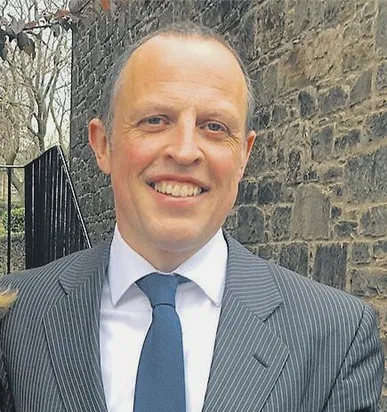
Scots Free Church
planting push
Freechurch.org
Date posted: 1 Jan 2021
With
the
aim
of
planting
30
churches by 2023,
a Church Planting
Director has been
announced by
the
Free
Church
of
Scotland.
The Revd Neil
MacMillan
said:
‘Planting new churches
is a vital part of our mission
in secular
Scotland. As we sustain and nourish existing
congregations,
the gospel also drives us
outwards to new places and new people. The
most
important element of this challenge
is prayer, so pray for a movement of God’s
Spirit in our nation so that we can do all this
and much more.’

Leatherhead: church lockdown launch
Joel Murray of the FIEC describes how God
has been answering the prayer of a church
in Leatherhead:
How often do we really pray Ephesians
3:20, asking God to do immeasurably more
than we ask or imagine?

Two-day-old Barako saved in ‘miracle’ flight
Gary Clayton
Date posted: 1 Jan 2021
Even though the number of flights MAF made in 2020 was reduced because of coronavirus, its planes were still able to bring hope, help and healing to 26 of the world’s poorest and most vulnerable nations.
In Kenya, where overland travel can be dangerous by day and treacherous at night, Pilot Daniel Loewen-Rudgers flew a baby boy from Dukana, on the Ethiopian border, to Kijabe Hospital, when the condition of the newborn became critical. According to Daniel: ‘It was a miracle we could fly to a good hospital like Kijabe during the pandemic.’
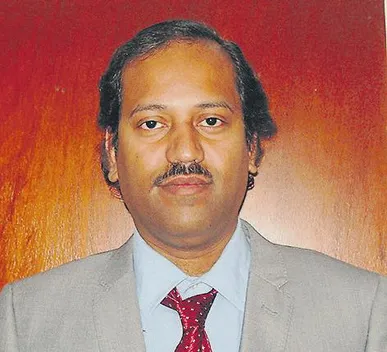
90% of pastors lack proper theological
training, major conference is told
Chris Sugden
Date posted: 1 Jan 2021
90% of pastors have no formal theological
education,
a
specialist
in
theological
education in the Global South has told an
international consultation.
Dr Manfred Kohl, who has experience in
supporting and financing ministry training,
explained
that
for
this
reason he
funds
only people – and not buildings. He also
challenges institutions and their funders to
think
radical
thoughts about
theological
education.

history
Of Bede and birds

Michael Haykin
Date posted: 1 Jan 2021
Last month we looked at the life of Bede
(c.673–735),
the Anglo-Saxon historian
who is best known for his Church History
of the English People (Historia Ecclesiastica
Gentis Anglorum).
Why does this historical work – which
traces
the history of England
from
the
Roman occupation to 731, the year that
it was completed, as well as detailing the
conversion of
the Anglo-Saxon peoples –
merit calling Bede a model historian?

A safe church is a transparent one

Carl Chambers
Date posted: 1 Jan 2021
Carl Chambers argues that victims of abuse have been failed by churches too easily covering things up
In 2015, Matthew Syed published a book called Black Box Thinking. He contrasts the culture of the airline industry with the health service in the US and UK.
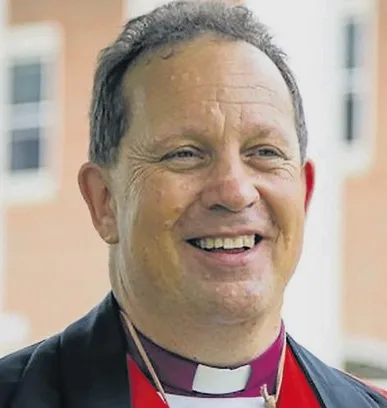
C of E orthodox fight on as new Anglican group set up
EN
Date posted: 1 Jan 2021
Evangelicals in the Church of England have been preparing to contend in the wake of the launch of Living in Love and Faith – while a new Anglican network has also been set up.
At the latest General Synod, a presentation was given on the new Living in Love and Faith (LLF) resources on issues of sexuality and gender.
Can we renew our cities in a Christian way?
I have a great love for cities; especially London, where I was born and bred. However, despite their attractiveness as major centres of cultural and intellectual activity, when we consider the UK’s soaring urban crime rates and the relatively higher incidences of self-harm and suicide in our cities, it’s clear that something has gone seriously wrong. Last year, in our urban cities and towns, there were 34.7 recorded acts of violent crime per 1,000 population, compared to 6.8 in rural areas. Additionally, there were more than double the number of vehicle offences per 1,000 in predominantly urban areas, when compared to predominantly rural areas. While social scientists have discovered an exponential relationship between population density and both deprivation and the crime rate, unravelling the underlying causes – and, more importantly, potential cures – has proven far more difficult. Frederic Le Play was a celebrated 19th-century French sociologist, engineer and economist, who, in his twenties, was converted to Christ from atheism. He was also the first scholar to investigate shifts in family configurations systematically. His ability to speak five languages and understand eight facilitated his extensive surveys of working-class families in different European, North American, Asian, North-African and Asian countries. Although a pioneering technologist, one of the key findings from his 1855 publication ‘Les ouvriers européens’ (‘European workers’) was that, despite the benefits of industry and urban development, the major social upheaval that they caused had resulted in smaller nuclear families replacing traditional extended families. He also explained that the resultant loss of intergenerational ties (including moral and religious traditions) had led to moral decay.
Despite this evidence, Le Play’s findings were keenly contested by some of the 20th century’s leading sociologists, until his position was eventually vindicated by later studies.